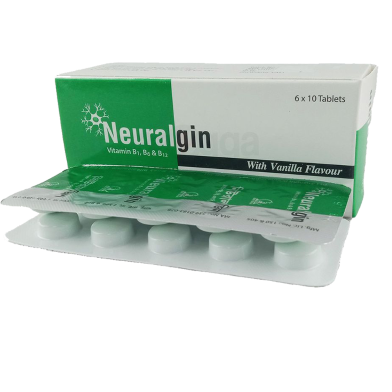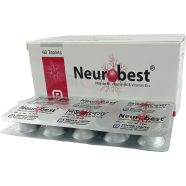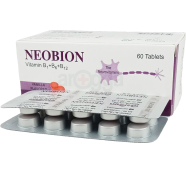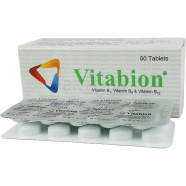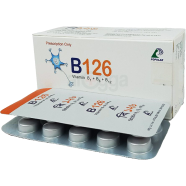Vitamin B1 converts carbohydrates, fatty acids and amino acids into energy, promotes healthy nerves, improves mood, strengthens the heart. Vitamin B6 forms RBCs, helps cells to make proteins, manufactures neurotransmitters e.g. serotonin and releases stored forms of energy, helps to prevent CVS diseases and stroke, helps to lift depression and eases insomnia. Vitamin B12 is essential for cell replication and important for RBC production, prevents anemia, helps to prevent depression, reduces nerve pain, numbness, tingling and lowers the risk of heart diseases.The vitamin ingredients are absorbed well in per oral reception. It is widely distributed to most tissues and appears in breast milk. Within the cell, thiamine is mostly present as diphosphate. Thiamine is not stored to any appreciable extent in the body and amounts in excess of the body’s requirements are excreted in the urine as unchanged thiamine or as metabolites. Pyridoxine, pyridoxal and pyridoxamine are readily absorbed from the GIT following oral administration and are converted to the active forms of pyridoxal phosphate an pyridoxamine phosphate. They are stored mainly in liver where there is oxidation to 4-pyridoxic acid and other inactive metabolites, which are excreted in urine. As the dose increases, proportionally greater amounts are excreted unchanged in the urine.
![]()





 Hello, Sign in
Hello, Sign in 
 Cart
Cart 
